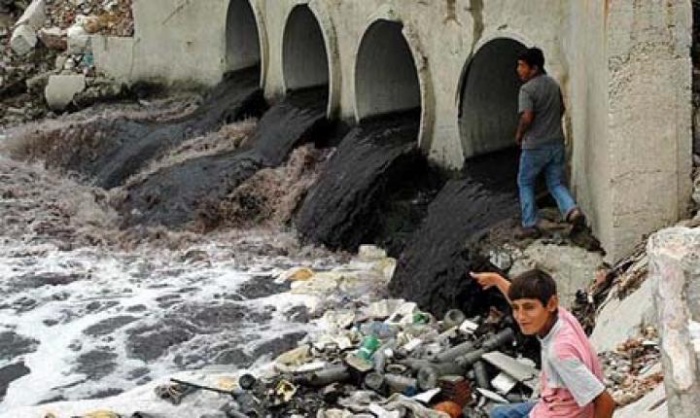Turkish academic Bülent Şık faces up to 12 years in prison for sharing with the public the results of an environmental study that indicated hazardous levels of environmental pollution in several regions of Turkey, the T24 news website reported on Wednesday.
The prosecution was launched upon the demand by Turkey’s Ministry of Health, which had initially ordered the research.
Şık published in the Cumhuriyet newspaper in April 2018 several findings that point to high levels of toxic substance residuals such as pesticides, heavy metals and polyaromatic hydrocarbon in foodstuffs and potable water reservoirs and, in some cases, water supplies contaminated with lead, aluminum, chrome and arsenic to the point that they were rendered undrinkable.
The study was conducted between 2011 and 2015 by a team of experts of which Şık was a member and which was established by the Ministry of Health in order to test water and food samples in Kocaeli, Tekirdağ, Kırklareli, Edirne and Antalya due to significantly higher cancer-related mortality rates in these provinces, whose population totals around 8 million.
One in five deaths in Tekirdağ, Kırklareli and Edirne and one in three deaths in Kocaeli are attributable to cancer, while Turkey’s national average is one in eight.
In order to conduct the research, the ministry had signed a protocol with Akdeniz University that included confidentiality clauses prohibiting the findings from being revealed unless approved by the authorities.
The İstanbul Chief Public Prosecutor’s Office, upon a criminal complaint by the ministry, filed an indictment accusing Şık of revealing confidential information as well as provoking outrage among the public based on provisions of the Turkish Penal Code that stipulate between five and 12 years in prison.
Earlier in 2016, Şık was dismissed from his university position by the government for signing a petition calling for a peaceful solution to Turkey’s Kurdish problem.
Although he was removed from his job, Şık reportedly continued to follow developments concerning the research only to find that the report was not even shared with the relevant public institutions responsible for taking precautions, let alone being revealed to the public.
He then decided that the information could not ethically be kept a secret and published the findings in a four-day series of articles in the Cumhuriyet newspaper.
Tora Pekin, a lawyer for Şık, denied allegations that what Şık revealed was confidential and subject to administrative authorization and reminded that the Lima Declaration entitles scientists to pursue and publish their studies without being hindered or censured.
